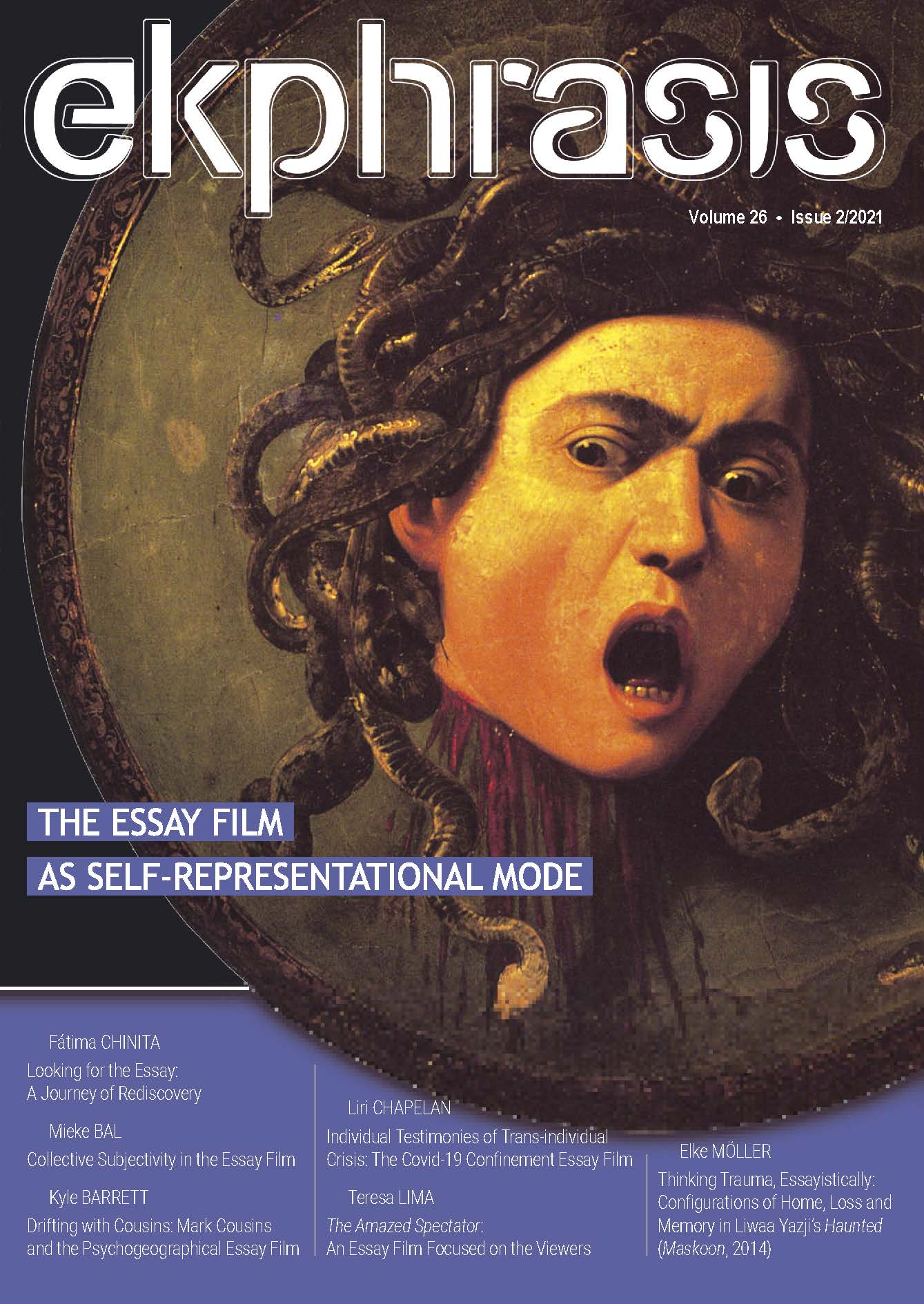The Essay Film as an Archival Practice for Self-representation
The Essay Film as an Archival Practice for Self-representation
Author(s): Vladimir Rosas-SalazarSubject(s): Fine Arts / Performing Arts, Film / Cinema / Cinematography
Published by: Universitatea Babeş-Bolyai, Facultatea de Teatru si Televiziune
Keywords: Essay film; autobiography; archive; self-reflexivity; home movies; Chilean cinema; Tales from my Chilhood; Evil Eye;
Summary/Abstract: The essay film as a form of expression allows filmmakers to delve into soul searching to elaborate autobiographical representations using experimental devices without the constraints of conventional narrative structures. By placing themselves in the foreground, experimental filmmakers can interrogate the world through the self, creating an opportunity to construct alternative temporalities, whether by questioning the dynamics within their private sphere or connecting them to the historical circumstances in which they lived. In doing so, the role archival materials may play in triggering such explorations is critical and raises several important questions: How can this footage be dislocated from its original context? How could its meaning change after it is re-signified into new texts? What new stories could emerge from such exploration? In addition, this material can open up discursive spaces in which cultural memory could be reworked beyond its evidentiary value. Most importantly, this sets up how the essay film, as a cinematic genre, can impact the representation of a life narrative, particularly through self-reflexive strategies related with the archive. For this, I analyze two Chilean essay films: Tales from my Childhood (Cuentos de miniñez, Francisca Durán, 1991), and Evil Eye (Mal de ojo, María Paula Díaz, 2019), addressing their archival film practice in terms of Catherine Russell’s definition of “archiveology” (2018). In addition, I propose that these essay films may be emancipatory or liberating through the filmmaker’s self-examination by activating the archival record and circulating it in the public sphere. Here, it is essential to bear in mind that both films were made by Chilean filmmakers; therefore, the historical context is crucial in these explorations.
Journal: Ekphrasis. Images, Cinema, Theory, Media
- Issue Year: 26/2021
- Issue No: 2
- Page Range: 56-71
- Page Count: 16
- Language: English

